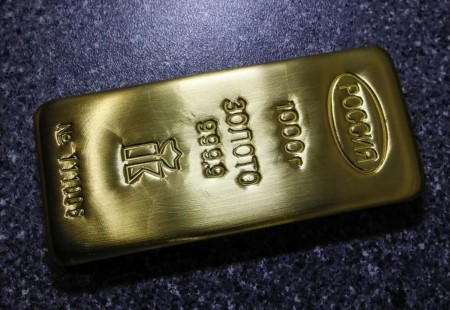




January Economic Update: Growth slows, prices rise
 DOWNLOAD
DOWNLOAD

Inflation Update: Up, up, and away?
 DOWNLOAD
DOWNLOAD

Quarterly Economic Growth Release: Growth takes on a slower pace
 DOWNLOAD
DOWNLOAD


Gold rallies over 1% as Credit Suisse crisis hits risk appetite

March 15 (Reuters) – Gold prices climbed over 1% to their highest since early February on Wednesday as a fresh crisis in the banking sector turned investors away from seemingly riskier assets and drove them to the safety of bullion.
Spot gold jumped 1.2% to $1,924.63 per ounce by 11:56 a.m. EDT (1556 GMT). U.S. gold futures gained 1.1% to settle at $1,931.30.
Europe’s bank stocks came under pressure again, with Credit Suisse (CSGN) shares sliding after its largest investor said it could not provide the Swiss bank with more financial assistance.
“It’s a total safe-haven trade. There’s a lot of concern about Credit Suisse and now European banks are really coming under quite a bit of pressure. So it’s a complete flight to safety,” said Phillip Streible, chief market strategist at Blue Line Futures in Chicago.
Gold prices in sterling hit a record high while bullion in euros also spiked towards all-time peaks hit last year.
“People are going to the U.S. Treasuries, gold, silver, and the dollar. They’re exiting riskier assets like U.S. equities and economically sensitive metals like copper, platinum and palladium,” Streible said.
Gold rose despite a sharp jump in the dollar. A strong greenback would usually weigh on demand for dollar-priced bullion.
Spot silver added 0.6% to $21.82 per ounce, while platinum fell 2.4% to $958.76, and palladium lost 3.1% to $1,459.79.
Overall focus was still on the Federal Reserve’s next move on interest rates as it assesses data showing elevated inflation in February against the backdrop of the collapse of two regional banks.
Markets put a 57.1% chance on the Fed holding its benchmark rate at current levels at its March 21-22 policy meeting.
Gold is traditionally considered a hedge against inflation, but higher rates increase the opportunity cost of holding the non-yielding asset.
Volatility is expected over the coming days ahead of the Fed meeting, said Craig Erlam, senior market analyst at OANDA.
(Reporting by Bharat Govind Gautam and Ashitha Shivaprasad in Bengaluru; Editing by Mark Potter and Emelia Sithole-Matarise)
This article originally appeared on reuters.com





 By Reuters
By Reuters